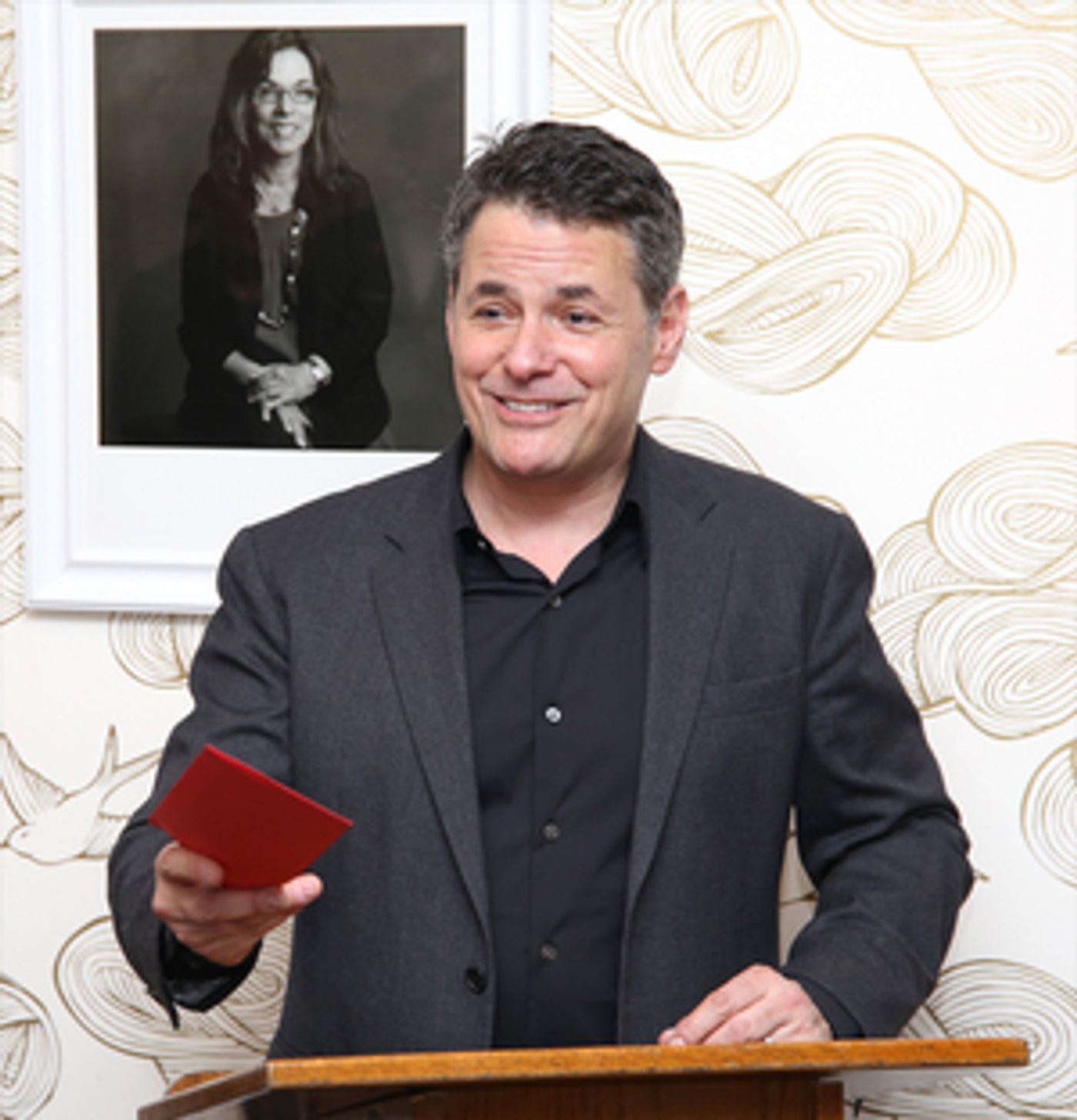MasterVoices Presents Adam Guettel's WORK, Starting February 24
"Work" is the second chapter of Guettel's theatrical song cycle 'Myths and Hymns'

MasterVoices will present Work, the second chapter of a four-part virtual rollout of award-winning composer Adam Guettel's theatrical song cycle, Myths and Hymns. This free digital production will be offered starting on Wednesday, February 24 at 6:30 PM ET on mastervoices.org and the ensemble's YouTube channel.
Inspired by Greek myths and a 19th-Century Presbyterian hymnal, the 1998 cycle is a kaleidoscopic collection of musical genres as it explores the nature of faith and longing in a secular world. New short musical films will illustrate the protagonist's exploration of Flight, Work, Love, and Faith.
Work features the MasterVoices chorus and soloists Shoshana Bean, Daniel Breaker, Anthony Roth Costanzo, Michael McElroy, Ailyn Pérez, and Nicholas Phan, and actor John Lithgow. Also contributing are directors Anthony Roth Costanzo, Doug Fitch, Anne Kauffman and Ted Sperling; visual artists Manik Choksi, Erik Freer, Thomas Nguyen, Adrienne Rogers, and Ray Charles White; lyricist Ellen Fitzhugh; and orchestrators Don Sebesky and Jamie Lawrence.
Myths and Hymns' first chapter, Flight, launched on January 13 and the third and fourth chapters (Love and Faith) will be released in free digital installments, streaming on April 14 and May 26. All chapters will remain available for streaming from their respective launch dates until June 30, 2021. Held the evening prior to each installment's public launch, MasterVoices will host a private virtual screening with additional content featuring director Ted Sperling and some of the artists. More details on the screenings are available here.
Following his Obie Award-winning 1996 musical Floyd Collins - for which Ted Sperling served as Music Director - Adam Guettel's next project was the song cycle Myths and Hymns. The songs were inspired by two very different sources: the ancient Greek stories of Icarus, Pegasus, Hero and Leander, and Sisyphus, and Protestant hymn texts that the composer found in an antique hymnal. It was workshopped in several forms and venues and ultimately performed as Saturn Returns in an extended run at the Joseph Papp Public Theater in 1998, where it became a must-see event. Sperling and Guettel made a recording of selections for Nonesuch Records using the original title, and ever since then the work has been known as Myths and Hymns.
The song cycle opens with a jaunty prologue, Prometheus, and is sparked by the song Saturn Returns: the Flight. This song lays out the central issue that the cycle is attempting to resolve: a "hunger inside" that is not easily categorized or sated, a feeling that something has been lost, a yearning for completion, for fulfillment. The four chapters then explore different "places" where the answer may lie. In the first chapter, Flight, the answer seems to be "up," or "away." Guettel frames the myth of Icarus as the story of a young man striving to get out from under his famous father's shadow and shine like the sun. After his crash, the solace and hope of Migratory V expresses the human aspiration to fly together and soar above the troubles below. The retelling of Pegasus explores the fall of the hero Bellerophon when he angers Zeus. The chapter ends with the cycle's first hymn text, Jesus, the Mighty Conqueror, with its refrain consisting of the single word, "rise," repeated over and over.
In the second chapter, Work, the possible answer comes in dedication, striving, and struggle. Children of the Heavenly King/At the Sounding is a call to action creating an ebullient mood, and in contrast, Build a Bridge describes the sense of futility of attempting a bridge too difficult to cross. It is followed by the humorous back-and-forth motion of Sisyphus, who is relentlessly optimistic that he will finally succeed in pushing the rock to the top, and the chorus, which is forced to watch his vain efforts. Life is But a Dream takes "Row Your Boat" as a jumping-off point, and asks ruefully, "Is it really like the song? Do we gently row along?" The chapter ends with Every Poodle with scat lyrics and raga-inspired dance breaks, a release after all this effort.
Videos

